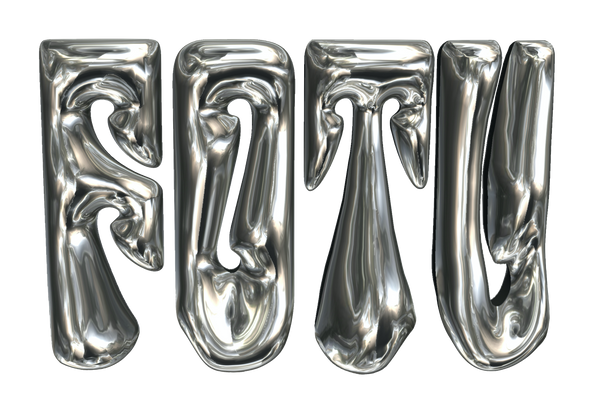Author: Adriana Preile
At FOTU, we see transformation not as a final product but as a process. A state of becoming that never truly ends. Our latest conversation with Jamie-Lee, a musician, yogi, and runner, embodies this philosophy in every sense.
When asked what transformation means to her, she tells us:
“I would say transformation means basically becoming in a constant state of becoming, and whether that's emotionally or physically or artistically, you kind of don't really have a fixed endpoint, and you're constantly in movement and flow and just responding to what's going on around us.
I think in playing music, especially doing violin and viola, it kind of requires you to almost surrender to the subtle shifts in sound and tone and technique and emotion because they're so refined, and it's never about an ending or ultimately being perfect. It's just about evolving the sound and how that makes you feel.
Yoga's kind of helped me in that sense because it's taught me to witness transformation in the stillness and the breath and listening and taking in everything around me. And then I guess running sort of reminds me of how endurance changes throughout the body and the mind as well, because you're constantly in a state of going through so many different emotions physically and mentally.
And I guess transformation is a slow circular unfolding and it's not a straight line. You come and you go.”
This circular unfolding is at the heart of her practice. Through sound, breath, and endurance, Jamie-Lee reminds us that transformation isn’t about progress or perfection, but presence.
Her yoga practice brings her closer to her body in a way that both complements and contrasts her music and running:
“Yoga helps me connect to the body through breath, I would say ultimately it taught me how to breathe and how to listen without agenda in a different way than in music and running.
It kind of feels like with music and running there's an end goal, or you're aiming towards something, a finish line. But in yoga, it's where I tune into the sensation without actually needing to change it.
And it really shows me how I'm feeling each day, whether I'm feeling strong and open or heavy and tight and kind of just learning to be able to accept that not every day is going to be a great day. Every day is going to be a great day however you feel.”

For Jamie-Lee, music is language. The violin has been her companion since childhood, her first form of expression before words.
“Violin I've been playing for as long as I can remember. It's my first language. I was always very shy, so I felt that I could express myself through a physical thing. I didn't have to use my own voice, and I could, in a word sense, hide behind my instrument.
When I play, I'm not really translating feelings into words. I'm just letting the words live in the sound of what I want to express. That's where I can go into a different plane of existence and feel unapologetically me without having to explain anything or why what's happening.
It's also such a physical instrument. You use your breath, the pressure of the bow, the weight of your arm, every single muscle in your finger, muscles I remember learning I didn’t even know I had.”
Her way of living, and creating, is holistic. Even clothes become a form of expression, tied to movement and freedom.
“I feel like I need clothes that feel comfortable and that I can move in. I always say I want to be able to do a handstand at any time. I want to be able to go upside down at any time when I'm wearing the clothes that I'm wearing.
They kind of feel like a costume for the mood that I want to inhabit in that moment. It's about finding what feels right in that moment. And I guess through music and running and yoga, I can figure out how I'm feeling that day or that moment and how I want to express myself through movement or clothes or style.”
She finds inspiration in the fleeting moments, the in-between:
“I find inspiration through my friends, through the little everyday things that you see: the way light hits somebody's face on the train, the way someone's washing is blowing in the wind, the way material moves, the way you can hear people having their own little conversations or zoning out in a conversation.
Recently, I've just been drawn to the small, quiet details and feeling like they're almost like seeds of something that might grow into something else, how I can express that in my work.”
And then there’s being in a state of flow: the place where thinking dissolves, and sensation takes over:
“When I know I'm in flow, I guess time disappears and my body kind of feels like an extension of my work, whether it's through the fingers on the string or when I'm running, feeling my feet hitting the pavement, or my breath moving in sync with a pose.
In flow, the thinking takes a back seat and everything becomes a sensation or an instinct. It's kind of like slipping into the water, you stop worrying about where it ends and just let yourself be carried.”
The Practice of Transformation situates Jamie-Lee’s reflections within a wider exploration of process, embodiment, and artistic language. Her voice anchors the piece, as movement, music, and stillness intersect in a continuous state of becoming. By weaving FOTU’s recycled mesh garments into this ritual, the work responds directly to the brief: to consider transformation not as a fixed outcome, but as a practice of presence, vulnerability, and change. This dialogue between garment, body, and sound embodies FOTU’s ethos: sustainability as process, design as language, and collaboration as transformation in itself.
Link to video: https://www.instagram.com/p/DOBIm7SjNyO/?hl=es-la

